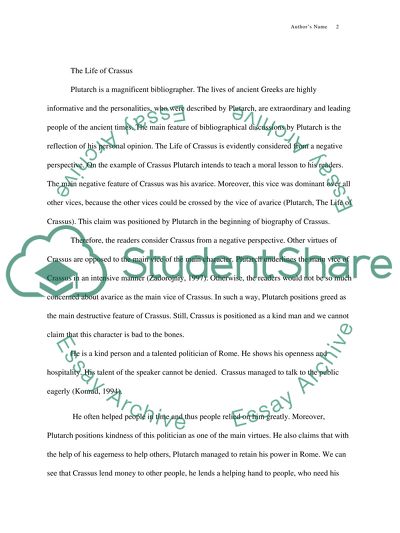Cite this document
(The Lives of the Noble Grecians and Romans - Plutarch Crassus Assignment, n.d.)
The Lives of the Noble Grecians and Romans - Plutarch Crassus Assignment. Retrieved from https://studentshare.org/history/1586533-write-a-critical-review-of-plutarch-life-of-crassus
The Lives of the Noble Grecians and Romans - Plutarch Crassus Assignment. Retrieved from https://studentshare.org/history/1586533-write-a-critical-review-of-plutarch-life-of-crassus
(The Lives of the Noble Grecians and Romans - Plutarch Crassus Assignment)
The Lives of the Noble Grecians and Romans - Plutarch Crassus Assignment. https://studentshare.org/history/1586533-write-a-critical-review-of-plutarch-life-of-crassus.
The Lives of the Noble Grecians and Romans - Plutarch Crassus Assignment. https://studentshare.org/history/1586533-write-a-critical-review-of-plutarch-life-of-crassus.
“The Lives of the Noble Grecians and Romans - Plutarch Crassus Assignment”, n.d. https://studentshare.org/history/1586533-write-a-critical-review-of-plutarch-life-of-crassus.


